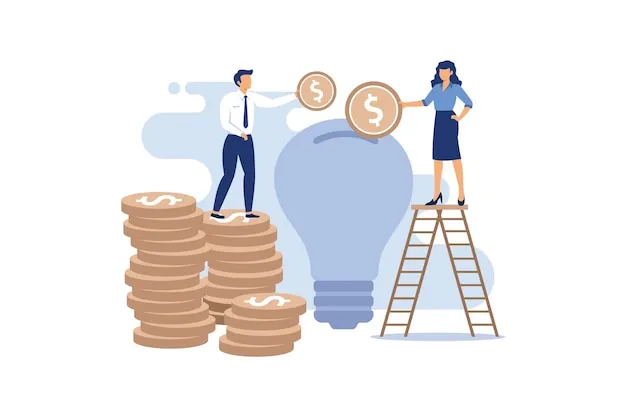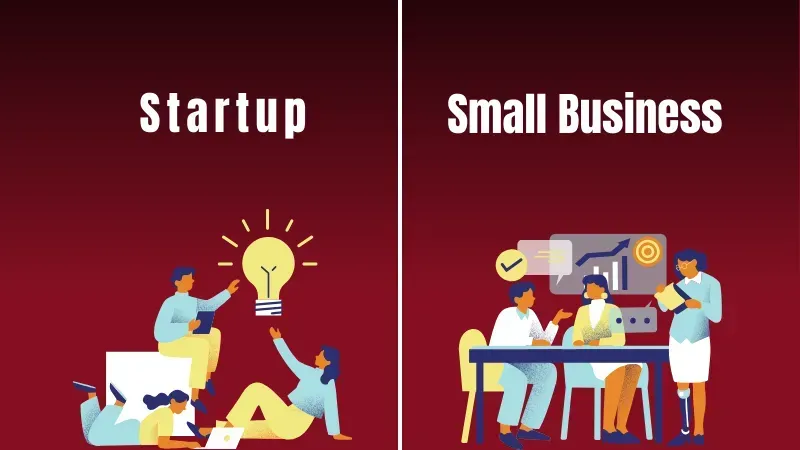Startups
A Beginner’s Guide to Startup Capital and Funding Options

The term startup capital refers to the money raised by a new company in order to satisfy its initial expenditures. Entrepreneurs who want to raise startup capital have to construct a firm business plan or develop a prototype in order to market the idea. Startup capital may be provided by venture capitalists, angel investors, banks, or other financial institutions and is often a large sum of money that covers any or all of the company's main initial costs such as inventory, licenses, office space, and product development.
How Startup Capital Works?
Young enterprises that are just in the development phase are termed startups. These companies are founded by one or more individuals who generally want to develop a product or service and put it to market. Raising money is one of the first things that a venture needs to do. This financing is what most people refer to as venture capital.
Startup capital is what entrepreneurs use to pay for any or all of the required expenses involved in establishing a new business. This includes paying for the initial recruits, procuring office space, permits, licenses, inventory, research and market testing, product manufacturing, marketing, or any other operational expense. In many circumstances, more than one round of venture capital investment is required in order to get a new business off the ground.
You may also read :- Technology Startups Are Improving Education
How Much Startup Capital Do You Really Need?
The majority of startup capital is distributed to new companies by professional investors such as venture capitalists and/or angel investors. Other sources of venture capital include banks and other financial institutions. Since investing in new companies comes with a large degree of risk, these investors often require a firm business plan in exchange for their money. They usually get an equity stake in the company for their investment.
Types of Startup Capital

Banks provide startup capital in the form of business loans—the traditional method to sustain a new business. Its largest drawback is that the entrepreneur is required to begin payments of debt plus interest at a time when the venture may not yet be profitable.
Venture capital from a single investor or a group of investors is one alternative. The successful applicant generally passes over a share of the company in return for funding. The agreement between the venture capital provider and the entrepreneur specifies a number of possible scenarios, such as an IPO or an acquisition by a larger company, and defines how the investors will benefit from each.
Angel investors are venture capitalists who adopt a hands-on approach as advisers to the new business. They are often themselves accomplished entrepreneurs who use some of their profits to get involved in nascent companies, serving as mentors to its management team.
Startup Capital vs. Seed Capital
The term startup capital is often used interchangeably with seed capital. Although they may seem the same, there are some subtle differences between the two. As mentioned above, venture capital usually originates from professional investors. Seed capital, on the other hand, is often provided by close, intimate contacts of a startup's founder(s) such as friends, family members, and other acquaintances. As such, seed capital—or seed money, as it's sometimes called—is typically a more modest sum of money. This financing is usually enough to enable the founder(s) to construct a business plan or a prototype that will generate interest with investors of startup capital.
Advantages and Disadvantages of Startup Capital
Venture capitalists have underwritten the success of many of today's largest internet companies. Google, Meta (formerly Facebook), and DropBox all got launched on venture capital and are now established names. Other venture capital-backed ventures were acquired by larger names—Microsoft purchased GitHub, Cisco bought AppDynamics, and Meta acquired Instagram and WhatsApp.
But providing fledgling companies with startup capital can be a hazardous enterprise. Backers hope that proposals will develop into lucrative operations and recompense them lavishly for their support. Many do not, and the venture capitalist's entire stake is lost. About 30% to 40% of all high-potential businesses conclude in liquidation, according to a 2011 Harvard Business School study. The few companies that endure and grow to scale may go public or may transfer the enterprise to a larger company. These are both termination scenarios for the venture capitalist that are anticipated to provide a robust return on investment (ROI).
That is not always the case. For example, a company may get a buyout offer that is below the cost of the venture capital invested or the stock may fail at its IPO and never recover its expected value. In these cases, the investors get a subpar return for their money.
To locate venture capital's most notorious casualties you have to go back to the dotcom collapse around the turn of the 21st century. The names survive on only as memories: TheGlobe.com, Pets.com, and eToys.com, to name a few. Notably, many of the firms that underwrote those ventures also fell under.





